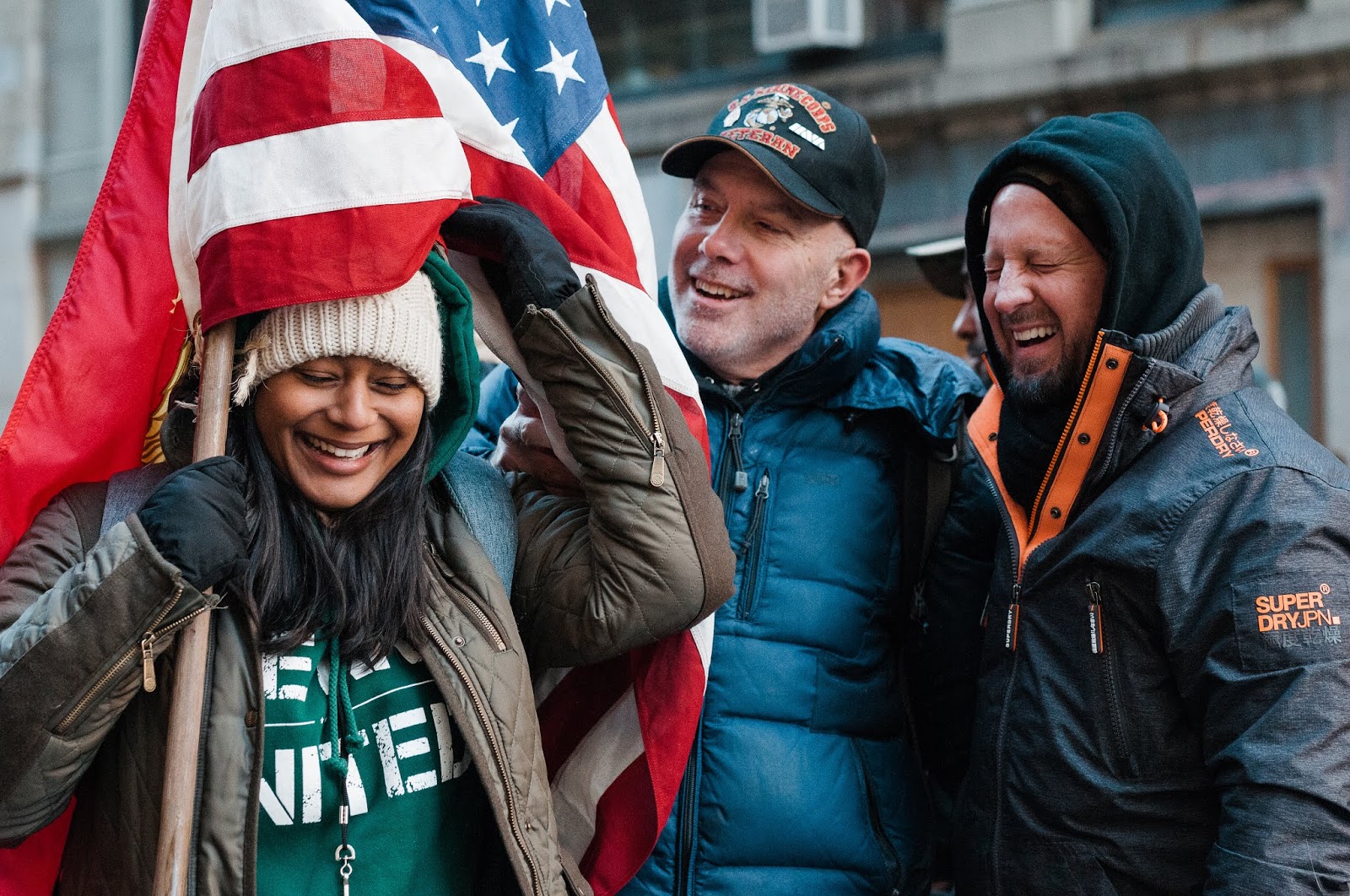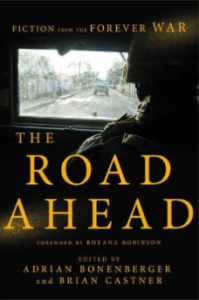IAVA | January 13, 2017
Read: Creative Spotlight: Q&A with Author Adrian Bonenberger

In the new collection The Road Ahead, a diverse group of writers share their perspectives on the wars in Iraq and Afghanistan. The stories are poignant and raw, highlighting experiences both at home and abroad. We spoke with Adrian Bonenberger, a co-editor and contributor to the collection about the editing process, the idea of a “forever war” and about short stories as a storytelling medium.
What was the process in editing such a diverse collection of stories? Did you find they had to express an overarching theme?
Editing the stories was an interesting and lengthy process. A couple of the stories we solicited initially didn’t make it—original contributors disagreed with the feedback or felt constrained by the process. Others changed with the editing. Some stories became more concrete and realistic, others, more surreal. We (the editors) were fortunate in that the best stories required little editing, and the stories that needed more editing were also rewarding in their own right. No stories were edited with a “theme” in mind, though—once the stories were done being edited, we just arranged them in a way that made sense.
Your collection’s subtitle frames a “forever war” to describe our age of conflict. What does a forever war mean? What could it mean for our country, and for a near-constant civilian-military divide?
We’re still figuring out what “forever war” means. In Joe Haldeman’s fiction of the same name (along with Dexter Filkins’ nonfiction book, the inspiration for the subtitle), “forever war” ends with a peace where the combatant sides evolve, forget what they were fighting about in the first place, and strike a peace accord. It’s a great sci-fi classic and I recommend it, but in terms of offering practical advice to a culture stuck in a kind of living death spiral, a slow and inexorable embrace of immorality and the spectacle of foreign violence for its own sake, sadly The Forever War comes up a bit short.
Kidding aside, forever war means living with the consequences of a war that never ends. It’s neat because it means we don’t have to take the time to figure out what’s responsible for war in the first place—we’re too busy triaging our psychological and physical wounds to take the time to say “this is the fault of capitalism” or “definitely radical jihadist islam” or “those devious Russians/Chinese/Pakistanis/Iranians/Saudi Arabians/Israelis.” Instead of attempting to build a forever peace like our parents (or at least grandparents) ostensibly were, we’re watching sweet Michael Bay films, playing the latest COD franchise game on Oculus Rift, Crossfitting, then grilling and chilling with our bros and sisters on Memorial Day.
The post-9/11 canon of war literature has brought every genre of writing, as well as a fair amount of short story collections. Why do you think this era of writing might be best wrought via short story?
To a certain extent, short stories have always been undersold to the public, in part because there’s a huge bias against them in the publishing industry for a variety of reasons. Frankly, we were lucky to get this collection published, especially in this market! A huge kudos to Roy Scranton, Matt Gallagher and Phil Klay for blazing the path with Fire and Forget, as well as to our agent Kate Johnson of Wolf Literary Services, and our editor Jessica Case of Pegasus Books.
For my part, though, you know, I grew up reading Anton Chekov and Stephen King’s short fiction. Some people do novels—short fiction collections have always just spoken to me in a way longer form tends not to. It could be an attention thing—our lives are more sporadic now, heavily interrupted (disrupted, even, by media and industry innovators!), and there isn’t as much time easily accessible for the enjoyment of a novel. A novel is something deliberate in a way that it wasn’t twenty years ago. At least we still have brilliant poetry and short fiction to rescue us from ourselves!






